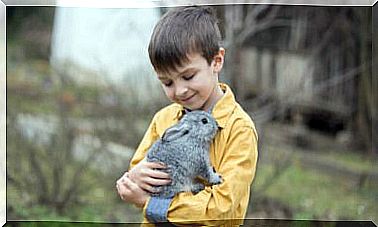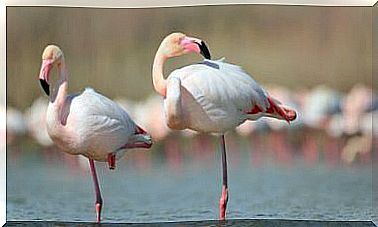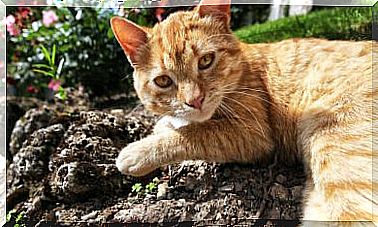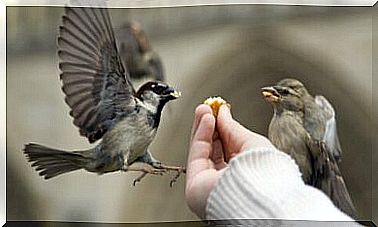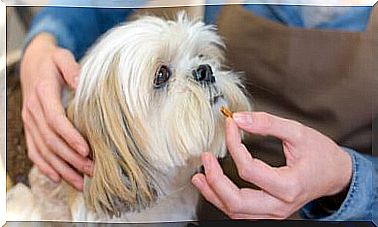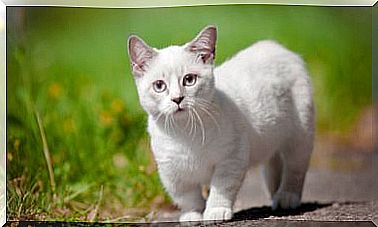Caring For Rabbits During The Hot Season
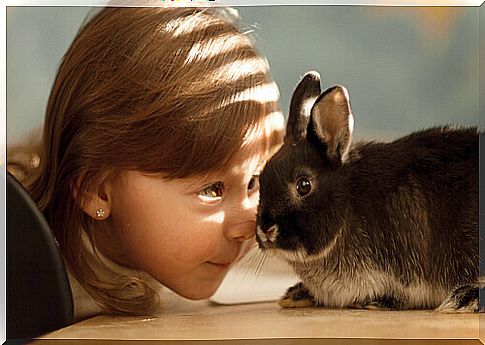
Rabbits during the hot season need specific care to preserve their good health. In general, these pets tend to get used more easily to temperate or cold climates.
Due to the characteristics of rabbits, high temperatures in summer expose them to various risks, such as dehydration.
When temperatures exceed 24ºC we must be attentive to whether our rabbits show any alteration in their appearance or behavior. And if they do exceed 30ºC, it will be essential to provide them with a cooler environment to prevent them from suffering from heat stroke.
Next, we will see a little more about the care for rabbits during the hot season. In addition, we teach you how to prevent and how to act urgently in the face of heat stroke.
Heat symptoms in rabbits
Some signals allow us to easily perceive if our rabbits are affected by intense heat. When identifying them, it is essential to act quickly to prevent the pet from becoming dehydrated. These are the main symptoms of heat in rabbits:
- Excessive panting
- Apathy and little desire to play.
- Lethargy.
- Lack of appetite.
- Stretch your legs and lie down with your belly on the floor to cool off.
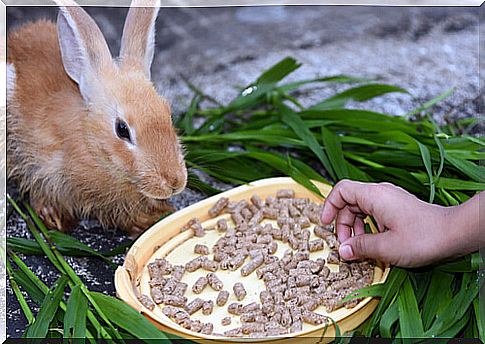
Tips to take care of your rabbits during the hot season
Now that we know how to identify heat signals in our rabbits, we will discuss the guidelines for caring for these little animals in the summer. By following these tips, we can preserve your health during the hot season.
Reinforce your hydration
Hydration is a key care to preserve the good health of rabbits during the hot season. When temperatures are very high, rabbits lose a lot of water and electrolytes; If they cannot replace them properly, they may suffer from dehydration.
To take good care of your rabbit in summer remember to always leave fresh and clean water at its disposal. Also, your drinker, feeder, and cage should be in a cool, well-ventilated place. If they are left in the sun or in a very hot region, the water will heat up and the food can spoil.
Provide a lighter and more refreshing diet
Rabbits need to receive complete and balanced nutrition throughout their lives to strengthen their immune systems and preserve their optimal health. It is always best to have the guidance of a veterinarian to choose the most appropriate diet for them.
To complement the feeding of the rabbits during the hot season we can offer them lettuce and fresh fruits. These foods provide your body with water and help keep you well hydrated.
Placing the cage in a cool room
During the summer it will be very important to find the coolest region of the home to locate the cage of our rabbits. Ideally, this room should be well ventilated and have balanced lighting, but do not expose the animal to the elements.
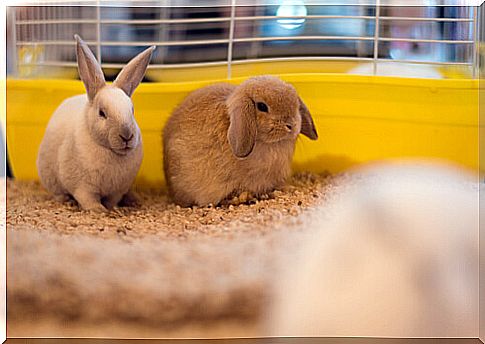
If the rooms in our home are very hot in summer we can place a fan. In this case, the wind must never be directed at the rabbit, but must spread throughout the environment to cool it. We can also add one or two ice cubes to your water to keep it always fresh.
How to deal with heat stroke in rabbits?
The above tips will be very helpful in preventing heat stroke in rabbits. However, it is also important to know how to act in this situation to help our pets.
Next, we present you, step by step, how to act quickly against heat stroke in rabbits:
- To lower the rabbit’s body temperature, we will start by taking it to the coolest area of the home.
- Then we will apply a little fresh water – not cold or ice – on the armpits, on the head and on the animal’s pads. For this we can use a clean cloth, gauze or cotton.
- If we observe that the body temperature is still very high, we can spray a little water on its fur. The goal is not to bathe the rabbit, just slightly dampen its fur to refresh it.
- We will also leave fresh water available to the rabbit, but we must not force it to drink it.
- Meanwhile, we will strive to refresh our rodent’s environment so that it can be calm and comfortable.
- If our rabbit does not react, it will be essential to seek emergency veterinary attention.
In this process, we should never suddenly cool the rabbit to avoid a thermal shock. Therefore, we will not use ice or cold water to lower your body temperature.
In addition, we recommend taking the animal to the vet even if it complies with these basic guidelines. The professional can help us establish a more appropriate diet and some more specific care for rabbits during the hot season.
